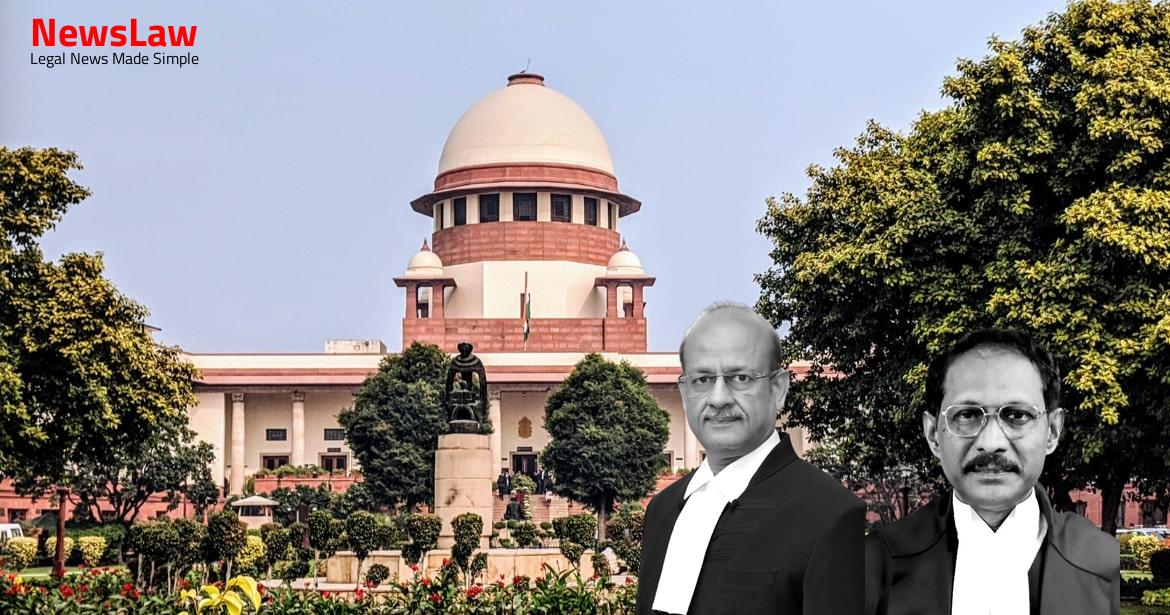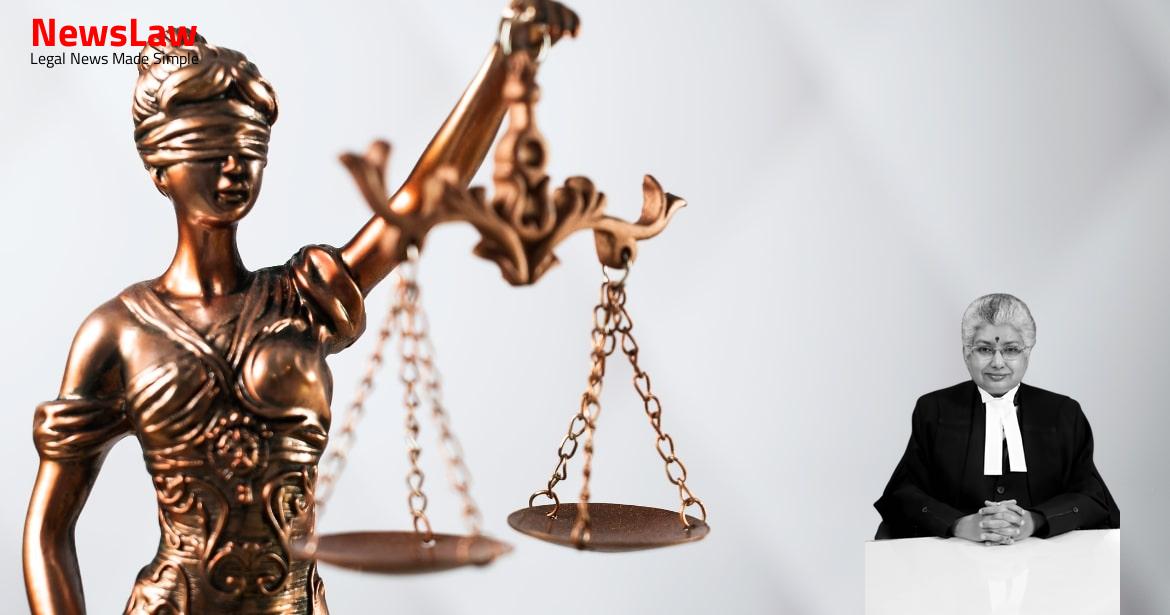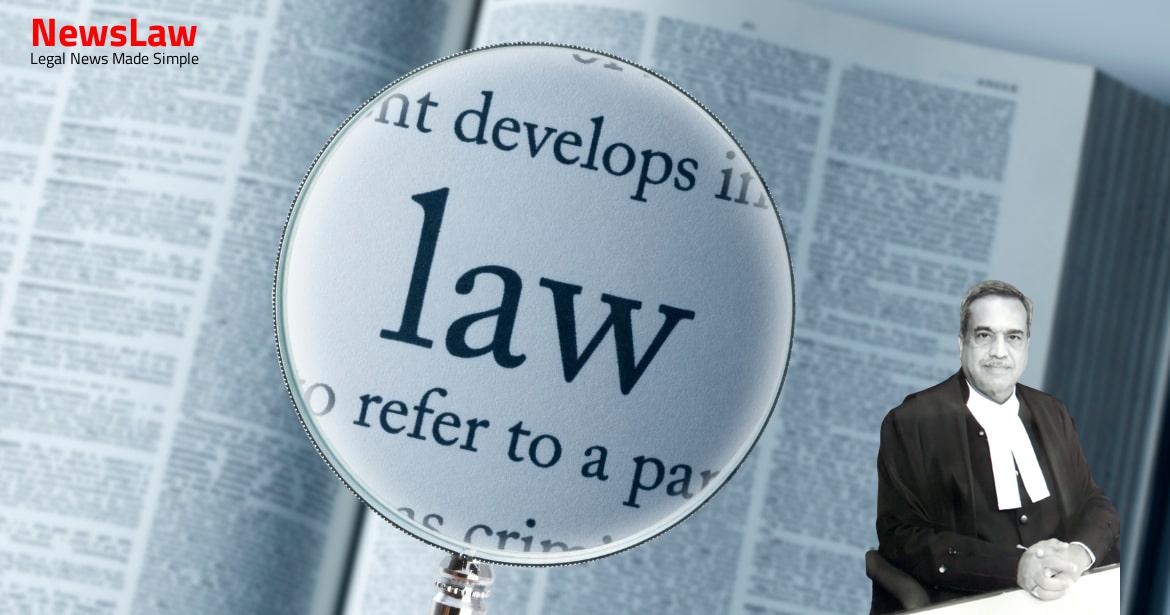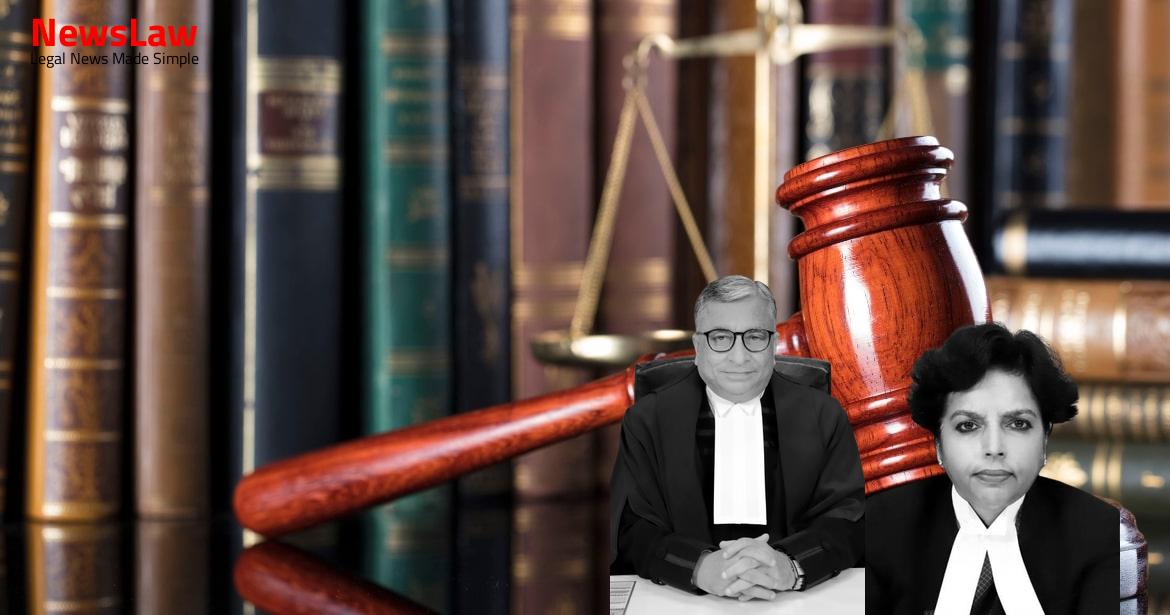In a recent legal case, the court’s thorough legal analysis highlighted the crucial aspect of prioritizing child welfare in custody cases. The decision-making process centered around the best interests of the child, emphasizing stability, security, and the child’s own wishes. Follow along to dive into the intricacies of how the law places the welfare of the child above all else in custody disputes.
Facts
- The child, Sumaiya Khanam, has been living with the appellants and respondent No.10 since birth.
- Mother of the child did not pursue any other remedy for custody.
- No objection raised by respondent No.2 to the acceptance of the closure report.
- A petition under the Guardianship and Wards Act, 1890 is pending.
- Complaint filed by respondent No.2 regarding kidnapping resulted in a closure report.
- High Court directed recovery of the child from the appellants and respondent No.10 to hand over to respondent No.2.
- Different issues framed during the hearing by the High Court.
- Private complaint filed by respondent No.2 under various IPC sections regarding custody.
- Petition for quashing the complaint led to stay of further proceedings.
- Wife of respondent No.2 filed a petition in Patna High Court for recovery of the child.
- Petition dismissed with liberty to seek legal remedies.
- Court directed State Government authorities to execute writ of Habeas Corpus to hand over the child to respondent No.2.
- Court deciding custody issue in parens patriae jurisdiction.
- Child handed over to appellant No.2 due to maternal grandmother’s inability to care for her.
- Child’s name changed to Dania Aman Khan from Sumaiya Khanam.
- Writ petition filed by respondent No.2 for custody of the child.
- Present appeal filed against High Court order in favor of respondent No.2.
- Birth of twin daughters to respondent No.2 on 20.03.2010.
- One twin left with maternal grandmother in Ranchi due to inability to care for both children.
Also Read: Legal Battle Over Property Partition
Arguments
- Appellants are raising the issue of custody of the child, not guardianship.
- The welfare of the child is of paramount consideration in the proceedings.
- Appellant No. 1 and respondent No. 10 have two other children.
- The best interest of the child is the primary focus in such matters.
- Respondent No. 2 filed a petition for Habeas Corpus five years after the child was living with the appellants.
- A closure report was filed and accepted regarding an FIR lodged by respondent No. 2.
- Since 2015, the biological parents have not met the child.
- The delay in filing the petition before the High Court was attributed to the COVID pandemic.
- Stability and the child’s settled environment for the last 14 years are crucial factors to consider.
- Appellant No. 1 and respondent No. 10 are willing to deposit a sum of ₹10,00,000/- in FDR for the child and transfer property worth ₹50,00,000/-.
- Kafalah allows custody to be given to another person without severing relations with biological parents.
- Reliance placed on Tejaswani Gaud v. Shekhar Jagdish Prasad Tewari and Rohith Thammana Gowda v. State of Karnataka and others.
- Custody of the child cannot be given to a stranger beyond a prohibitory degree for marriage under Mohammedan law.
- Appellant No. 2 requested to stay with the child for some time if custody is given to respondent No. 2.
- All parties involved in living in a joint family.
- Respondent No. 2 does not object to the fair offer made by the appellants, despite being married with children.
- The child was handed over to appellant No.1 when she was unmarried, which may lead to potential discrimination.
Also Read: Legal Analysis in Civil Appeal: A Summary
Analysis
- The High Court correctly identified the custody question in the case but veered off track by considering irrelevant aspects.
- The court interacted with the child, the appellants, and respondent No 2 individually to understand the situation.
- The matter at hand is solely about custody, with no claim for guardianship being made.
- The child in question, now about 14 years old, has been living primarily with appellant No 2 since a very young age.
- The child expressed contentment with the family she was raised by and does not desire any destabilization in her life.
- The welfare of the child is a crucial factor in determining custody, not the rights of the parents.
- The child’s comfort, contentment, health, education, intellectual development, and moral values must be considered.
- Courts should give weight to the child’s preference if old enough to form an intelligent opinion.
- The stability and security of a child are essential for their full development.
- The law prioritizes the child’s welfare over personal law and statutes.
- In cases of conflicting custody claims, the child’s welfare is the main focus.
- The wish of the child, if known and capable of expressing, is considered, but the best interest of the child is a key factor.
- Stability and consistency in a child’s life are crucial for their well-being.
- Decisions regarding custody should prioritize the welfare and well-being of the child.
- Courts are not bound by statutes or precedents in custody cases, and decisions should be made based on what is best for the child.
- Appellant No. 1 was unmarried when custody of the child was given to her, but is now married with two children.
- The fact that appellant No. 2 is now married with two children does not change the conclusion that the best interest of the child lies with her.
- The child has been living with appellant No. 2 since 3-4 months old and is now about 14 years old, expressing a clear desire to continue living with them.
- The welfare of the child is determined to be in the custody of appellant No. 2 and respondent No. 10, as the child herself wishes to live there.
- At 14 years old, the child is capable of forming her own opinion and was resolute about wanting to live with the appellants during interactions.
- The child cannot be treated as property and must be considered in terms of her stability, which supports the decision for her custody to remain with the appellants.
Also Read: Amendment Dispute in Partition Case
Decision
- The appeal has been allowed.
- The impugned order from the High Court has been set aside.
- As a consequence, the writ petition filed by respondent No. 2 in the High Court has been dismissed.
Case Title: SHAZIA AMAN KHAN Vs. STATE OF ORISSA (2024 INSC 163)
Case Number: Crl.A. No.-001345-001345 / 2024



